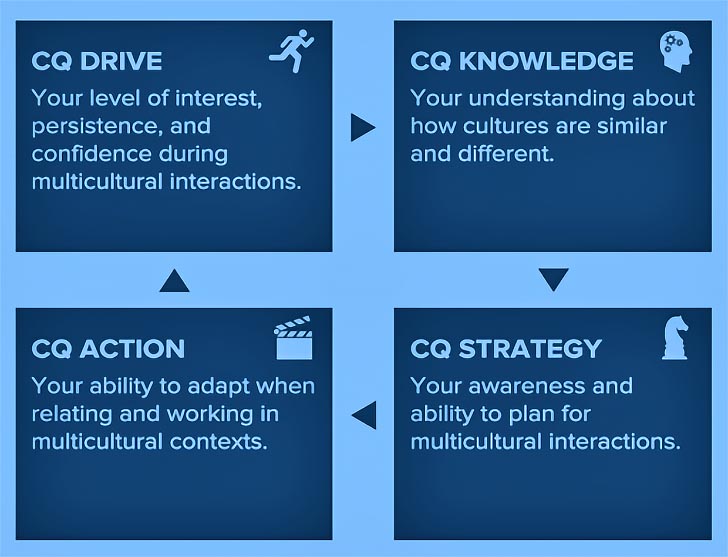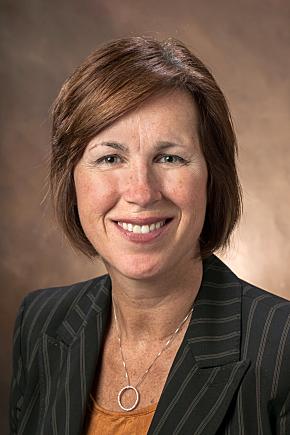
Miami University Farmer School of Business. Courtesy photo
Earlier this year, PepsiCo released a survey that found American consumers are more empathetic than ever and that it is critical for brands today to demonstrate empathy and take action in order to maintain customer loyalty and support. In response, a number of companies have championed empathy as their “brand mandate” going forward.
But Gillian Oakenfull, a marketing professor and the faculty director of Diversity and Inclusion at Miami University’s Farmer School of Business, says the real question is not whether or not brands can be empathetic, but rather, can the people running those brands be empathetic?
It is a central question that has laid the foundation for a new cultural intelligence (CQ) requirement at Miami’s Farmer School of Business. The new initiative, Beyond Ready CQ, requires all incoming students to develop comprehensive four-year plans with a unified strategy and skill set to improve their CQ as part of the degree requirement.
“In order to be good businesspeople, both inside and outside, we have to have these CQ skills,” Oakenfull tells P&Q. “It’s no good having an empathy brand mandate if we haven’t trained people to be empathetic and I don’t think business schools are doing that right now and we have to. This is a core business skill. This is not a future work skill, it’s a now work skill.”

Miami University Farmer School of Business image
WHAT IS CULTURAL INTELLIGENCE?
Cultural intelligence, or CQ, is defined as an individual’s capability to adapt and function effectively in different cultural environments and situations characterized by cultural diversity.
At the Farmer School of Business, CQ has been divided into four CQ capabilities: motivation (CQ Drive), cognition (CQ Knowledge), meta-cognition (CQ Strategy), and behavior (CQ Action).
“I wanted to make sure that, as a business school, we could focus on skills that could be programmatically developed,” she says. “This [CQ] program is focusing on understanding those four stages, what you need to go through the four stages, and having a toolkit that you use in each of the four stages.”

Gillian Oakenfull of Miami’s Farmer School of Business. Courtesy photo
ALL INCOMING BUSINESS STUDENTS NOW REQUIRED TO TAKE CQ SELF-ASSESSMENT
All incoming Farmer business students are required to take a CQ self-assessment, which sets the baseline for where they stand on each of the four key CQ dimensions. From there, they put together highly individualized development plans that focus on CQ growth and include coursework as well as co-curricular opportunities, including internships and study abroad programs, both on and off campus.
First-year students also partake in a “Diversity and Work Skills” core course, where they examine both identity and cognitive diversity and psychological safety. At the end of the semester, students work in teams to take on a client challenge to put their skill development tools to practice.
The Beyond Ready CQ program also features a diversity course requirement, a Global Readiness Certificate, study abroad and internship programs, and Beyond Ready CQ Badges that can be shared on LinkedIn.
“We’re really looking at programs that give our students tools, strategies, skills that they can document and represent to potential employees,” Oakenfull says. “Especially over this last year, I think it’s become apparent that we have to have more representation in the workplace but also have people in there who can work in an inclusive environment.”
BUILDING A DIVERSE AND INCLUSIVE WORLD OF BUSINESS
To bring about real change and develop diversity and inclusion in the business world, Oakenfull says there are two requirements that need to happen.
For one, there needs to be representation in places of leadership and decision making. In other words, she says, companies need to recruit minorities and advance them into leadership positions. The second requirement, however, is “making sure everybody else is an agent of change.” And that’s exactly what something like Beyond Ready CQ is attempting to do — prepare students to be agents of change.
“The first step is their personal awareness,” Oakenfull elaborates. “We have to make them not only accepting of other people, but also able to recognize inequalities, recognize their privilege, and recognize that with privilege comes power. They are in a position to change things. That’s what we have to do. That’s how everything gets better for everybody. It’s not just being accepting or being allies of minorities but being actual agents of change that go in and change systemic racism or inequality.”
A SHIFT IN THE MINDSET AND ATTITUDES OF BUSINESS STUDENTS
Oakenfull, who has been at Miami U for 23 years, has seen the shift in how each generation of students approaches diversity and inclusion. In her early years at Miami, Oakenfull recalls revealing to here students that she is gay.
“Every time, my heart would beat out of my chest just to say it: to say that I was gay,” she says. “I could sense the shift in the room when I said it. There was a definite shift and there was a risk in saying that, but it was a choice that I made.”
But that shift in the room isn’t something she feels with the newer generation of students.
“Now, I mention that my wife also teaches at the Farmer school, and we have three boys, and the students’ faces light up,” Oakenfull says. “It’s a very different place.”
When she looks at Gen Z, Oakenfull feels that they already have a fluid mindset for change, but it’s the business school’s responsibility to give them the curriculum and tools to bring about that change in the business world.
“You have to know how to assess the needs of somebody who’s different from you,” Oakenfull says. “That’s what the business school can do. It makes you better at your job. It makes you more employable. All of these are skills, not simply a moral imperative, but a business imperative.”
DON’T MISS: B-SCHOOLS ENROLLING THE MOST INTERNATIONAL STUDENTS or TOP B-SCHOOLS WITH THE MOST U.S. MINORITIES










